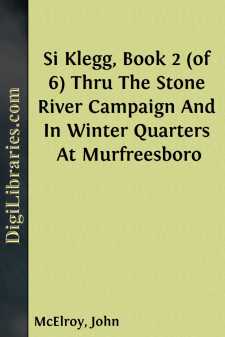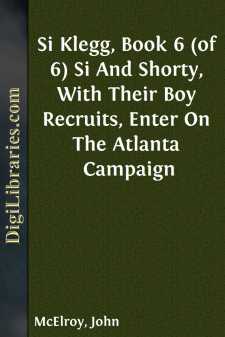Categories
- Antiques & Collectibles 13
- Architecture 36
- Art 48
- Bibles 22
- Biography & Autobiography 813
- Body, Mind & Spirit 142
- Business & Economics 28
- Children's Books 14
- Children's Fiction 11
- Computers 4
- Cooking 94
- Crafts & Hobbies 4
- Drama 346
- Education 46
- Family & Relationships 57
- Fiction 11829
- Games 19
- Gardening 17
- Health & Fitness 34
- History 1377
- House & Home 1
- Humor 147
- Juvenile Fiction 1873
- Juvenile Nonfiction 202
- Language Arts & Disciplines 88
- Law 16
- Literary Collections 686
- Literary Criticism 179
- Mathematics 13
- Medical 41
- Music 40
- Nature 179
- Non-Classifiable 1768
- Performing Arts 7
- Periodicals 1453
- Philosophy 64
- Photography 2
- Poetry 896
- Political Science 203
- Psychology 42
- Reference 154
- Religion 513
- Science 126
- Self-Help 84
- Social Science 81
- Sports & Recreation 34
- Study Aids 3
- Technology & Engineering 59
- Transportation 23
- Travel 463
- True Crime 29
Andersonville - Volume 2 A Story of Rebel Military Prisons
by: John McElroy
Description:
Excerpt
The rations diminished perceptibly day by day. When we first entered we each received something over a quart of tolerably good meal, a sweet potato, a piece of meat about the size of one's two fingers, and occasionally a spoonful of salt. First the salt disappeared. Then the sweet potato took unto itself wings and flew away, never to return. An attempt was ostensibly made to issue us cow-peas instead, and the first issue was only a quart to a detachment of two hundred and seventy men. This has two-thirds of a pint to each squad of ninety, and made but a few spoonfuls for each of the four messes in the squad. When it came to dividing among the men, the beans had to be counted. Nobody received enough to pay for cooking, and we were at a loss what to do until somebody suggested that we play poker for them. This met general acceptance, and after that, as long as beans were drawn, a large portion of the day was spent in absorbing games of "bluff" and "draw," at a bean "ante," and no "limit."
After a number of hours' diligent playing, some lucky or skillful player would be in possession of all the beans in a mess, a squad, and sometimes a detachment, and have enough for a good meal.
Next the meal began to diminish in quantity and deteriorate in quality. It became so exceedingly coarse that the common remark was that the next step would be to bring us the corn in the shock, and feed it to us like stock. Then meat followed suit with the rest. The rations decreased in size, and the number of days that we did not get any, kept constantly increasing in proportion to the days that we did, until eventually the meat bade us a final adieu, and joined the sweet potato in that undiscovered country from whose bourne no ration ever returned.
The fuel and building material in the stockade were speedily exhausted. The later comers had nothing whatever to build shelter with.
But, after the Spring rains had fairly set in, it seemed that we had not tasted misery until then. About the middle of March the windows of heaven opened, and it began a rain like that of the time of Noah. It was tropical in quantity and persistency, and arctic in temperature. For dreary hours that lengthened into weary days and nights, and these again into never-ending weeks, the driving, drenching flood poured down upon the sodden earth, searching the very marrow of the five thousand hapless men against whose chilled frames it beat with pitiless monotony, and soaked the sand bank upon which we lay until it was like a sponge filled with ice-water. It seems to me now that it must have been two or three weeks that the sun was wholly hidden behind the dripping clouds, not shining out once in all that time. The intervals when it did not rain were rare and short. An hour's respite would be followed by a day of steady, regular pelting of the great rain drops.
I find that the report of the Smithsonian Institute gives the average annual rainfall in the section around Andersonville, at fifty-six inches --nearly five feet--while that of foggy England is only thirty-two. Our experience would lead me to think that we got the five feet all at once.
We first comers, who had huts, were measurably better off than the later arrivals. It was much drier in our leaf-thatched tents, and we were spared much of the annoyance that comes from the steady dash of rain against the body for hours.
The condition of those who had no tents was truly pitiable.
They sat or lay on the hill-side the live-long day and night, and took the washing flow with such gloomy composure as they could muster.
All soldiers will agree with me that there is no campaigning hardship comparable to a cold rain. One can brace up against the extremes of heat and cold, and mitigate their inclemency in various ways. But there is no escaping a long-continued, chilling rain. It seems to penetrate to the heart, and leach away the very vital force.
The only relief attainable was found in huddling over little fires kept alive by small groups with their slender stocks of wood....












